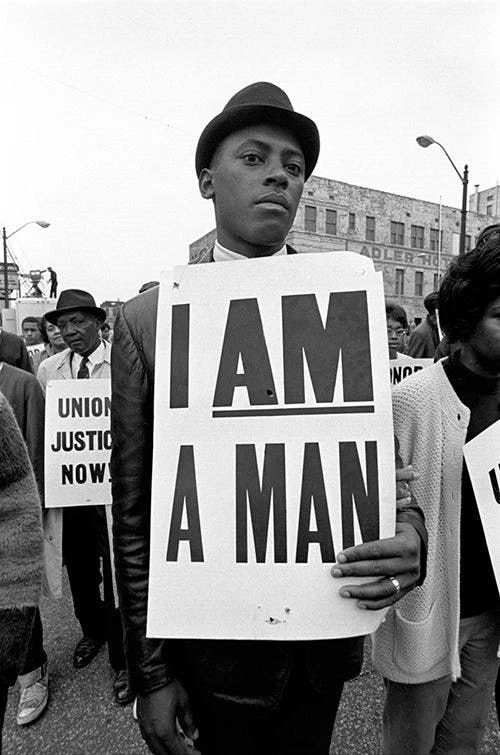What If I Only Got Hired Because Of My Skin Color?
At my first job, I arrived bright-eyed and bushy-tailed. It had never crossed my mind that I was hired because I’m Latina. But now, there are few companies where I could get a promotion or a raise without believing that my immutable characteristics — my sex and race — played a part.

The questioning of my worth didn’t happen until we started hiring more women, some of which were championing the idea of equity among the sexes, and especially among diverse women. They touted the typical feminist talking points at work: that we need to amplify voices of color, that we needed to encourage women to speak up since the STEM fields have supposedly shut out those voices for ages.
Many of those corporate-feminist women, and women who had been at my job for years, began to push for initiatives that would result in more women being hired — just because they’re women and we need representation. From then on, I began to ask myself, “Am I only here because I’m a brown woman?”
The Never-Ending Doubt of My Worth
I tend to be a nervous person. I like to know how things are done and why they’re done the way they are, and when some stuff is muddy around that, I get nervous. I like to feel in control of things because if something fails, I’ll know it was on me and I can change things so they can be better in the future.
When I started hearing about such hiring initiatives being green-lit, I began to be filled with dread. If I was correct in my thinking that I was hired only because of my sex and race, how many of my coworkers thought that about me? If it was true, how many of them knew? It started to feel like there was real potential for me to be the butt of some corporate joke or a sympathy hire (although the progressives in HR or the hiring decision board would disagree). And no matter how I tried to prove myself, my work ethic and skill would never trump the significance of my immutable characteristics.
I felt like I was the butt of some corporate joke or a sympathy hire.
I brought this up to my mentor after the doubt began to eat at me more and more. He repeatedly told me, “You were hired because we thought you were capable, not because of your race or sex.” I wanted to believe him. Maybe I was the last of the group that was hired for merit? It would never be clear to me, and I would never be able to shake that doubt. It’s not like anyone at the company would ever admit to that after all.
When Hard Work and Skill Aren’t Enough
I’m not the kind of person who gets hung up on what others think of me on a personal level. There are plenty of actual racists and sexists in the world (hint, they’re all over Twitter), and if I got hung up on being offended by them I just wouldn’t be productive. (Unless I wrote about them, of course.)
However, on a professional level, it’s a little different. I could have come in and if someone was a closet racist or sexist, I could at least say I was hired because I can do the job. And that person who holds prejudices against me for things I can’t control would have to accept that, or at the very least, it’d be in their own self-interest to do so.
But these days I can’t get a promotion without the hypothetical racist/sexist being right. No matter what I contribute or how well I do, it’ll always be a factor that I have to get that recognition because the company wants to promote women, simply because they’re women. They may be capable, but it’s equally, if not more important, that they are women.
If hard work and doing a good job aren’t enough to succeed at work, then why bother?
The increasing realization turned out to be a blow to my motivation. If hard work and doing a good job aren’t enough, why bother? While I entered my job wanting to go above and beyond, I became complacent doing the baseline work, and I became increasingly disenchanted. It took some time to get back to focusing on work for what it was: work. And for a while I was alright.
But then the politics began to seep into everyday stuff. When I was invited to talk about my experience at this company, I was told to include “How does it make you feel as a woman?” or “Can you speak about this from a woman’s perspective?” I’m a woman, not an alien creature with a completely different professional experience.
Diversity Policies Are Alienating
Shortly before I left the company, they started holding small-group seminars talking about the importance of diversity and inclusion. Some speakers, who identified as women of color, talked about how it’s important to acknowledge race, as that’s a large part of who you are. This runs contrary to Martin Luther King, Jr.’s ideals, specifically that we should be colorblind, and contrary to what black people championed during the Civil Rights movements, declaring “I am a man.” These days it seems they would prefer that people be explicit and say “I am a black man.”

So I’m left with one of two choices. Blithely agree with everything they say, because at the end of the day, everything they go on about only goes to benefit me — or speak out and have the mob go against me. Because the only thing worse than what they call racist or sexist is a woman of color who is allegedly also racist and sexist.
Hiring on the basis of merit would remedy a lot of issues, and it won’t hurt women of color.
I’m left with being okay with being the subject of a weird parade, without any real consent because, after all, this is all done under the guise of being helpful to me. Even though at the end of the day, I never asked for this, and all it does is result in an uncomfortable situation for me. It’s weird that I need to tell other coworkers that I’m not offended at being referred to as “guys” when I’m in a group of men and women, or that I can indeed take a joke.
Closing Thoughts
At the end of the day, it’s important to encourage little boys and girls to go into whatever field they want, and it’s important to allow children to feel welcome to learn and pursue new things. What’s more important than meeting a diversity quota is allowing children to grow into adults who will pursue what they want and be there because they want to be there.
At the end of the day, hiring on the basis of merit would remedy a lot of issues, and it won’t hurt women of color, unless of course, the idea is that women of color need a crutch in order to make it in the world (spoiler alert, we don’t).
Love Evie? Let us know what you love and what else you want to see from us in the official Evie reader survey.